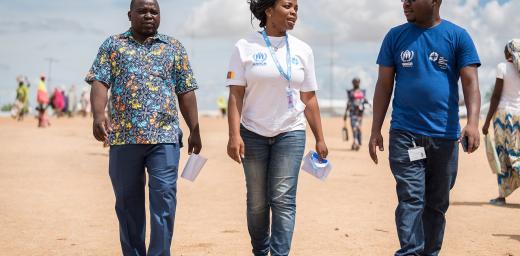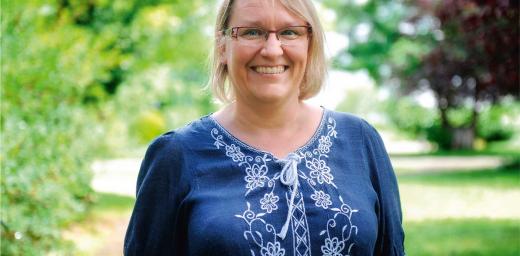Ecumenical witness among persecuted Iraqis
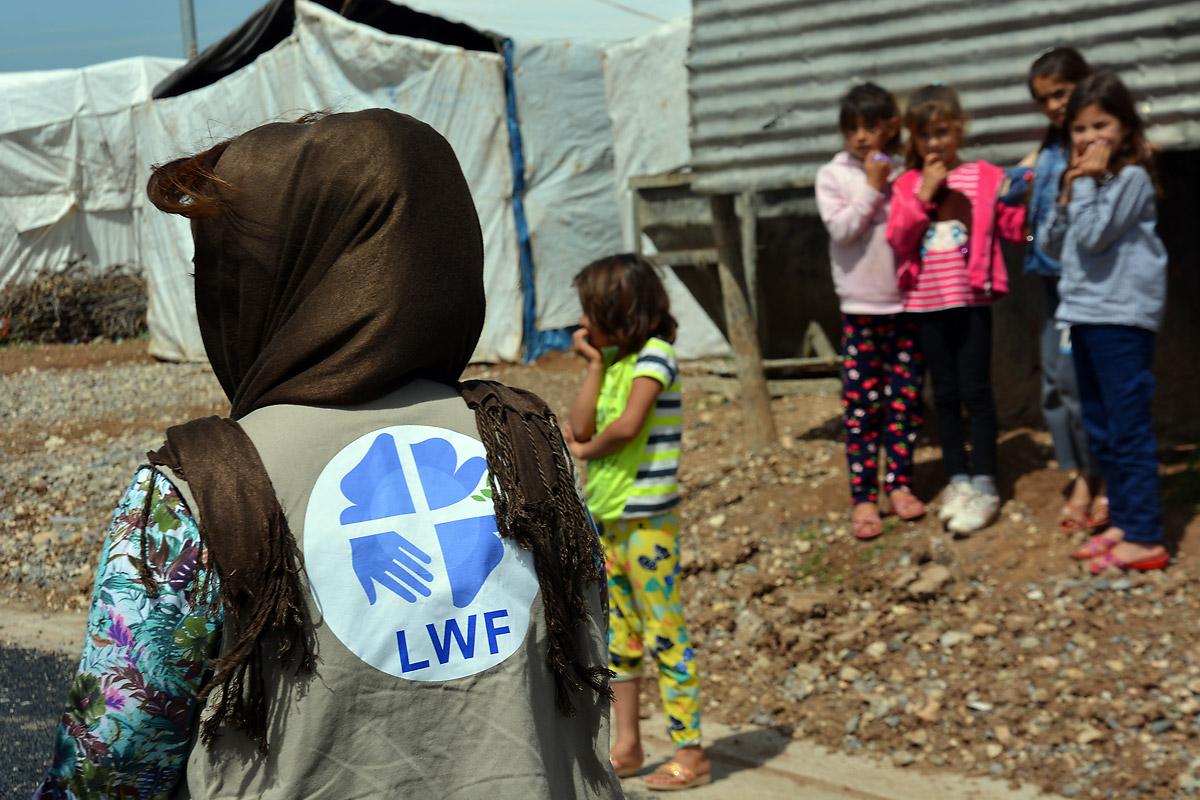
Members of the Hungarian Interchurch Aid delegation and LWF staff visited Davudiya refugee camp near Dohuk, where more than 700 Christian, Yazidi and Muslim families live. Photo: ELCH Northern Diocese
Hungarian church support for minorities and disadvantaged groups
“We must not abandon the persecuted Christians of Iraq and other countries,” says Hungarian Bishop Dr Tamas Fabiny, reflecting on a recent visit to a displaced people’s camp in Northern Iraq.
Fabiny, bishop of the Northern Diocese of the Evangelical Lutheran Church in Hungary, (ELCH) visited Erbil governorate in a delegation of the Hungarian Interchurch Aid (HIA). He praised “the sacrificial work of local staff and volunteers who are bringing hope amid ruins.”
HIA, which comprises the Protestant and Orthodox Churches in Hungary including the ELCH, has been working with local partners in the city of Ankawa (Erbil) since 2016. A member of the ACT Alliance, HIA supports internally displaced people and refugees in Iraqi Kurdistan and around 300 Iraqi Christians who fled Mosul when the city was besieged by the extremist group ISIS in 2014.
It was important to witness the attention that HIA pays especially to the needs of women and children, and affirm the role of churches in advocating for minorities and disadvantaged groups caught up in the long-standing conflict in Iraq
The HIA delegation also visited Davudiya refugee camp near the city of Dohuk. The Lutheran World Federation (LWF) works at the camp, providing support to more than 700 displaced Christian, Yazidi and Muslim families.
For Fabiny, “it was important to witness the attention that HIA pays especially to the needs of women and children, and affirm the role of churches in advocating for minorities and disadvantaged groups caught up in the long-standing conflict in Iraq.”
Photos by ELCH Northern Diocese and HIA.
Davudiya camp
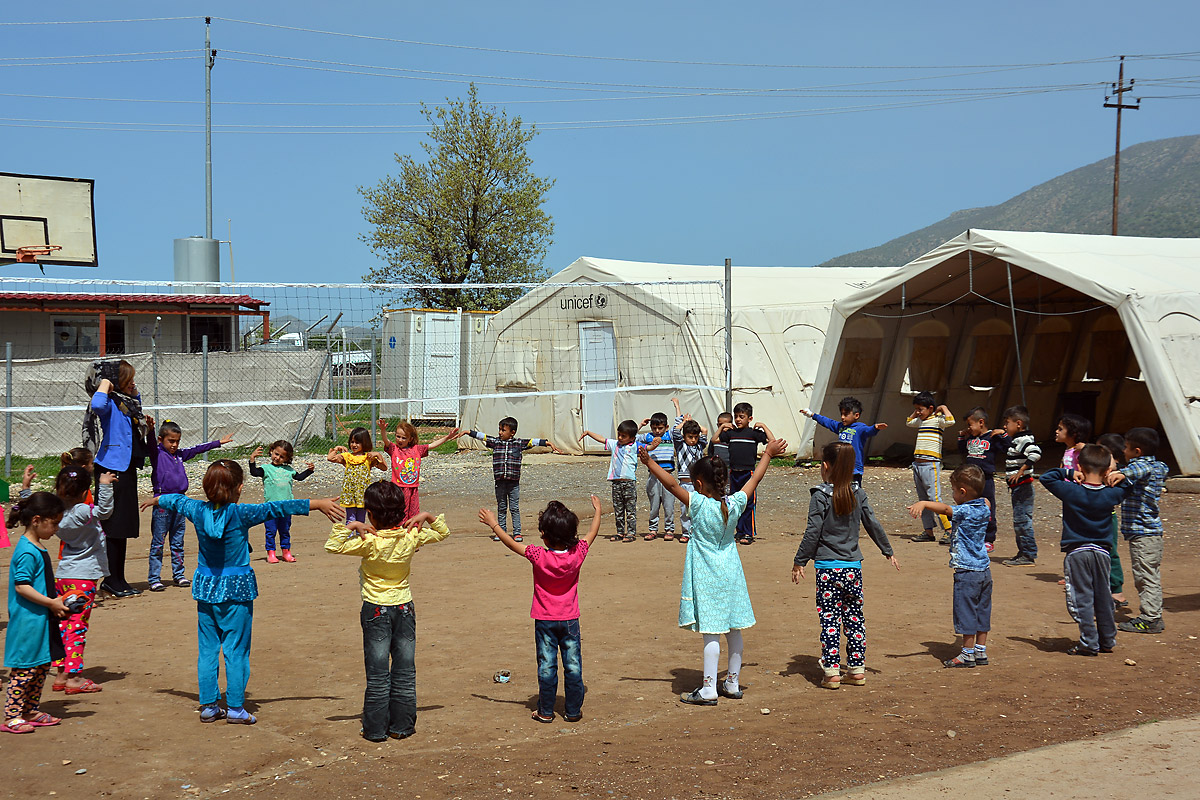
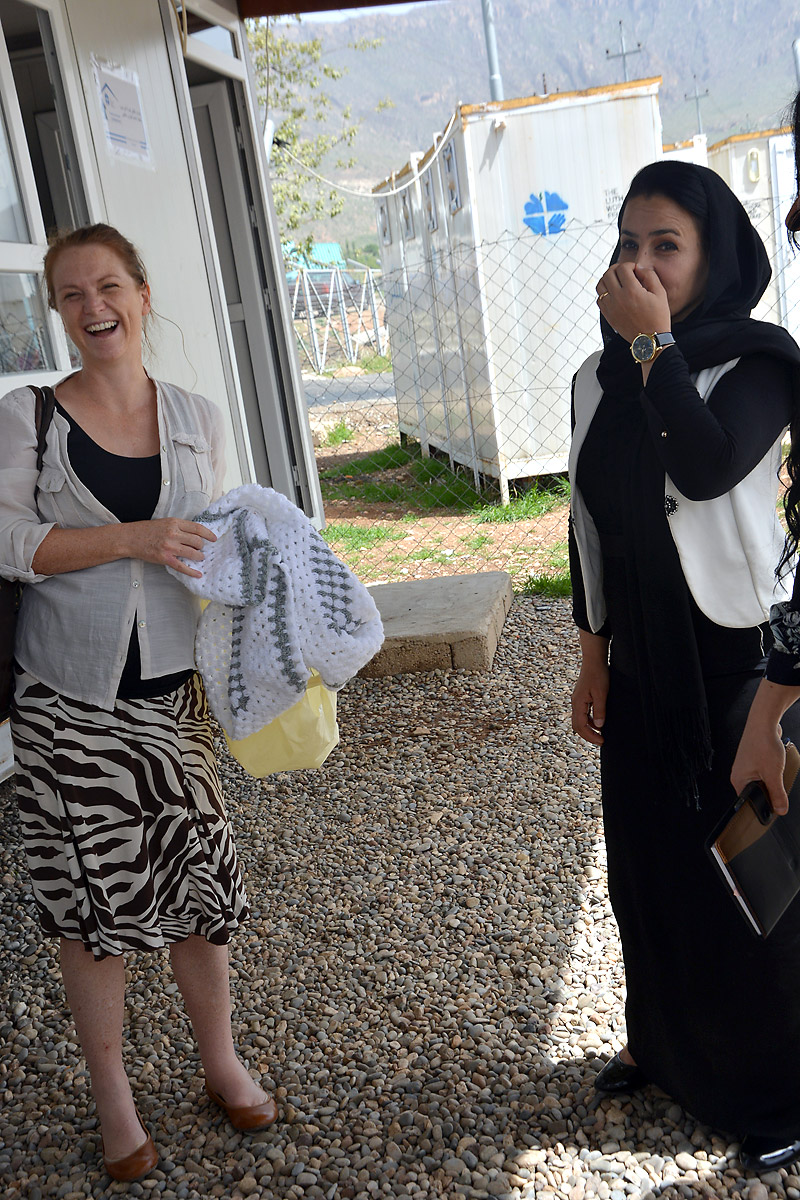
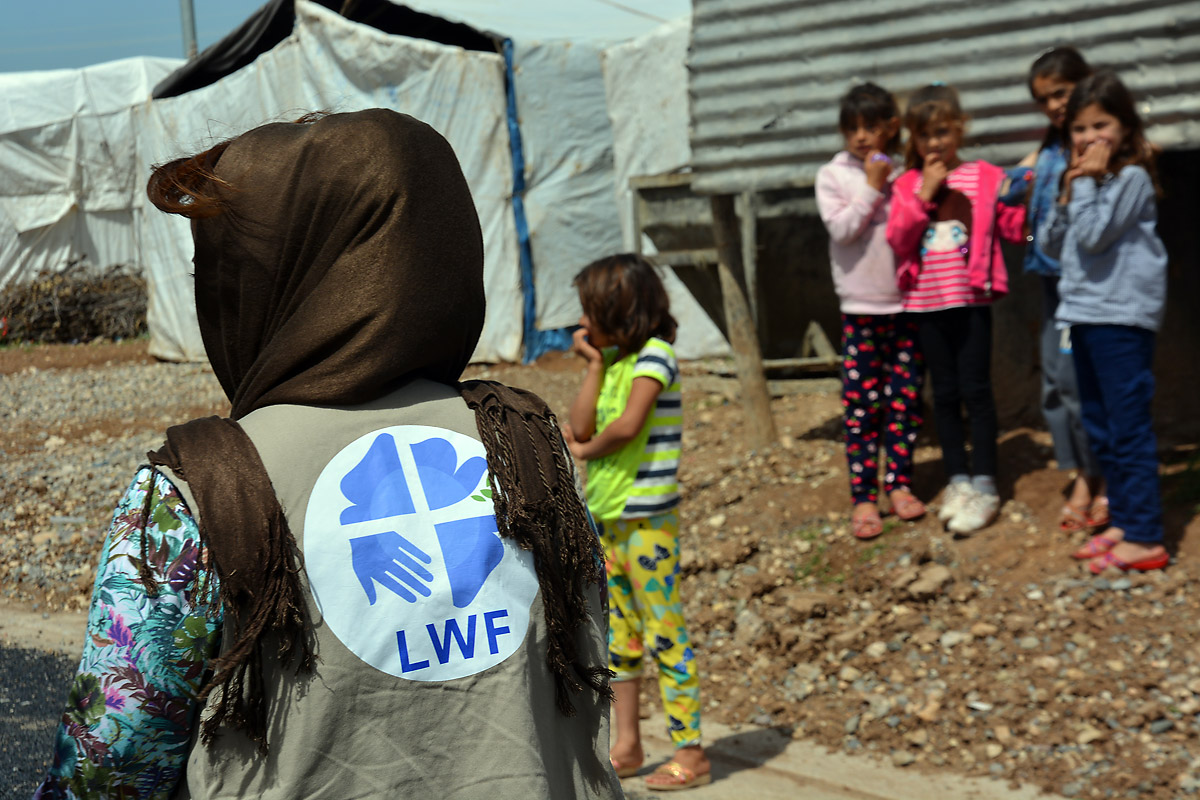
Members of the Hungarian Interchurch Aid delegation and LWF staff visited Davudiya refugee camp near Dohuk, where more than 700 Christian, Yazidi and Muslim families live. The LWF works with local partners in the camp, where it is responsible for water and sanitation projects providing a water purification system and hygiene kits.
The LWF has established a Women Friendly Space within the camp, where women and children receive psychosocial counseling through discussions, games and drawings.
Church service in Batnaya
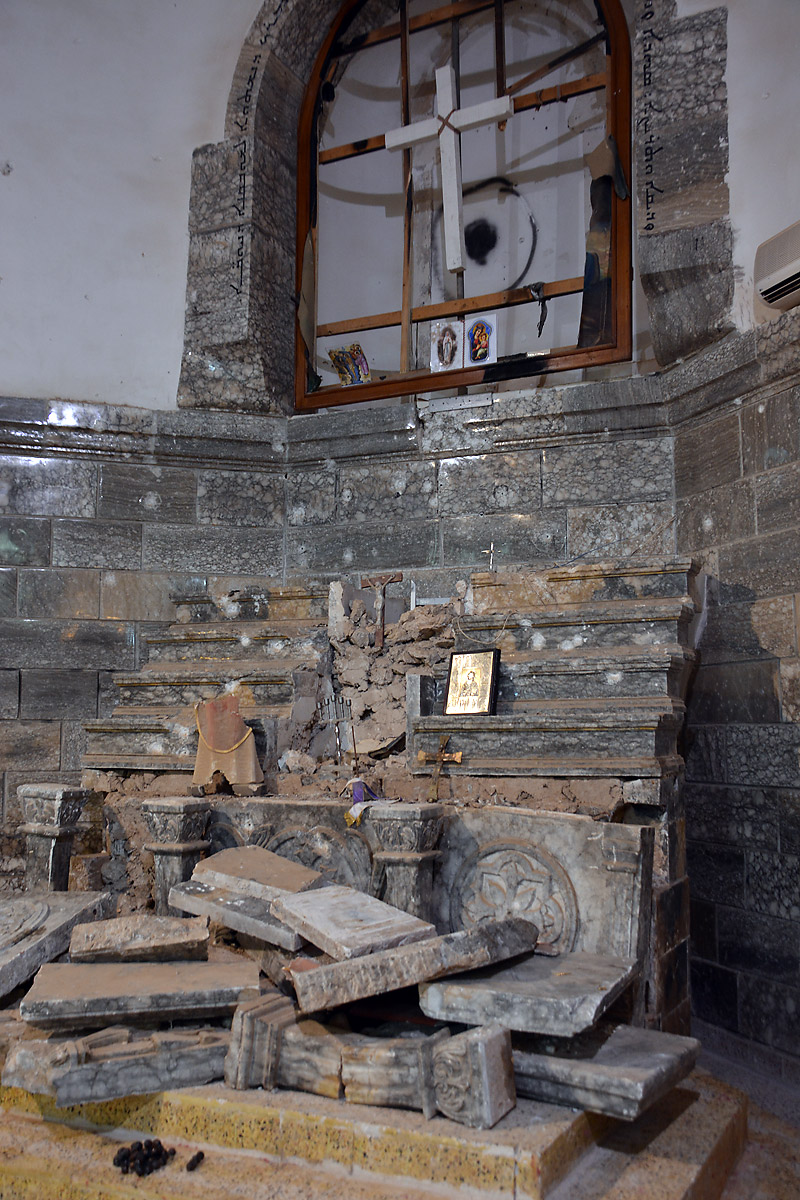
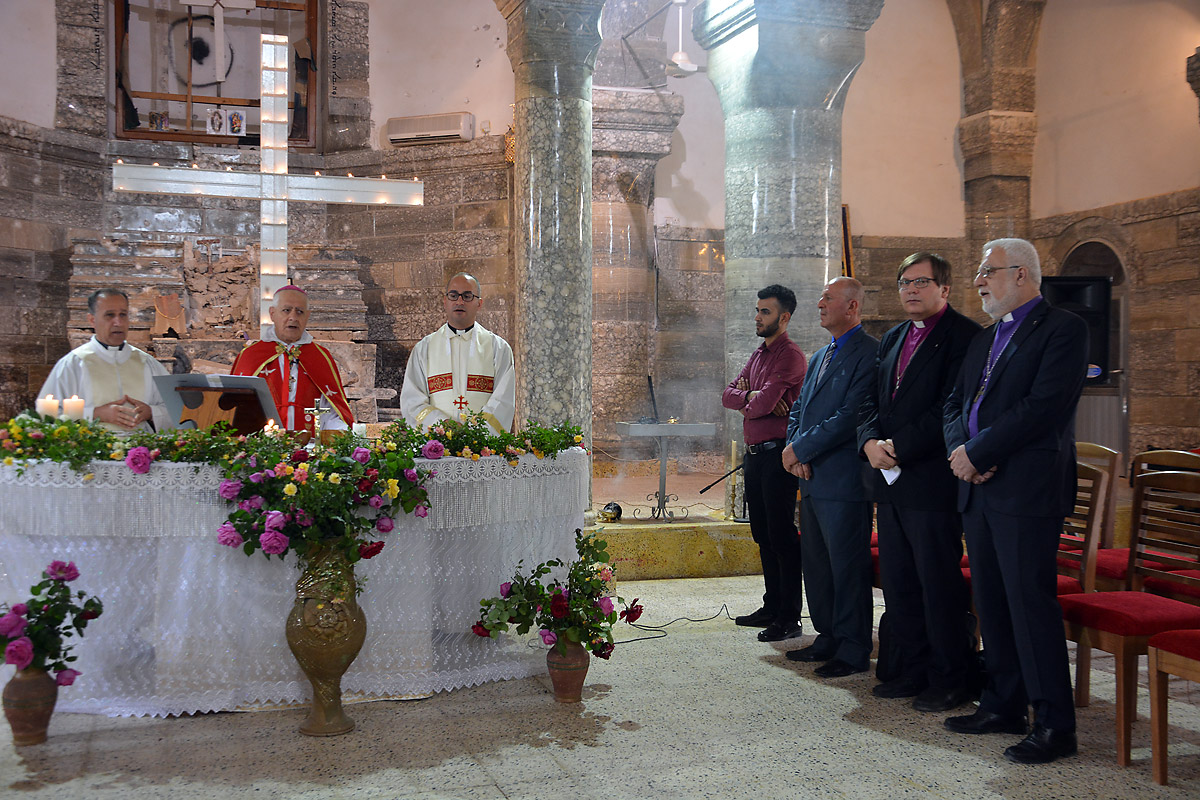
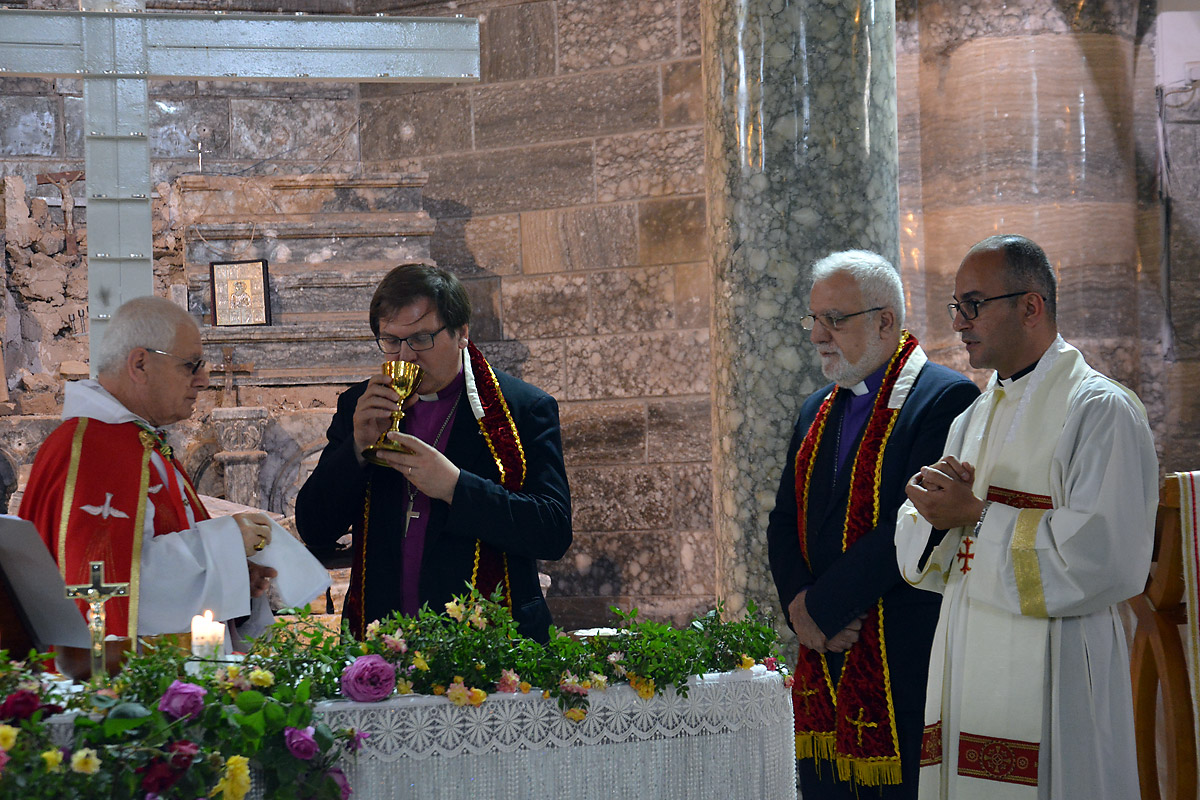
The Hungarian church delegation participated in Sunday worship at the Chaldean Church in Batnaya, a village recently liberated from the ISIS group.
Bishop Dr Tamás Fabiny, Evangelical Lutheran Church in Hungary, preached from Matthew 10:34-42, and Matthew 19: 27, and reflected on taking up the cross of Christ and leaving everything behind, an experience endured by many families.
Completely destroyed Batnaya
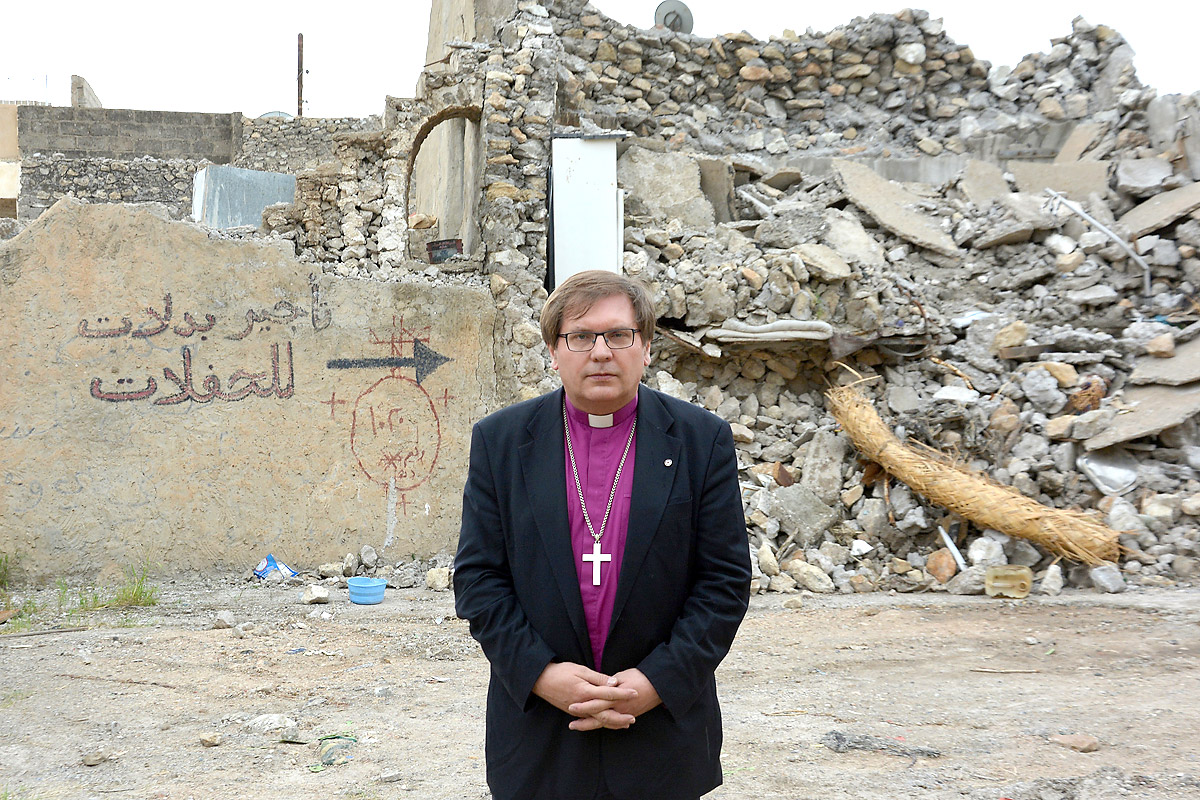
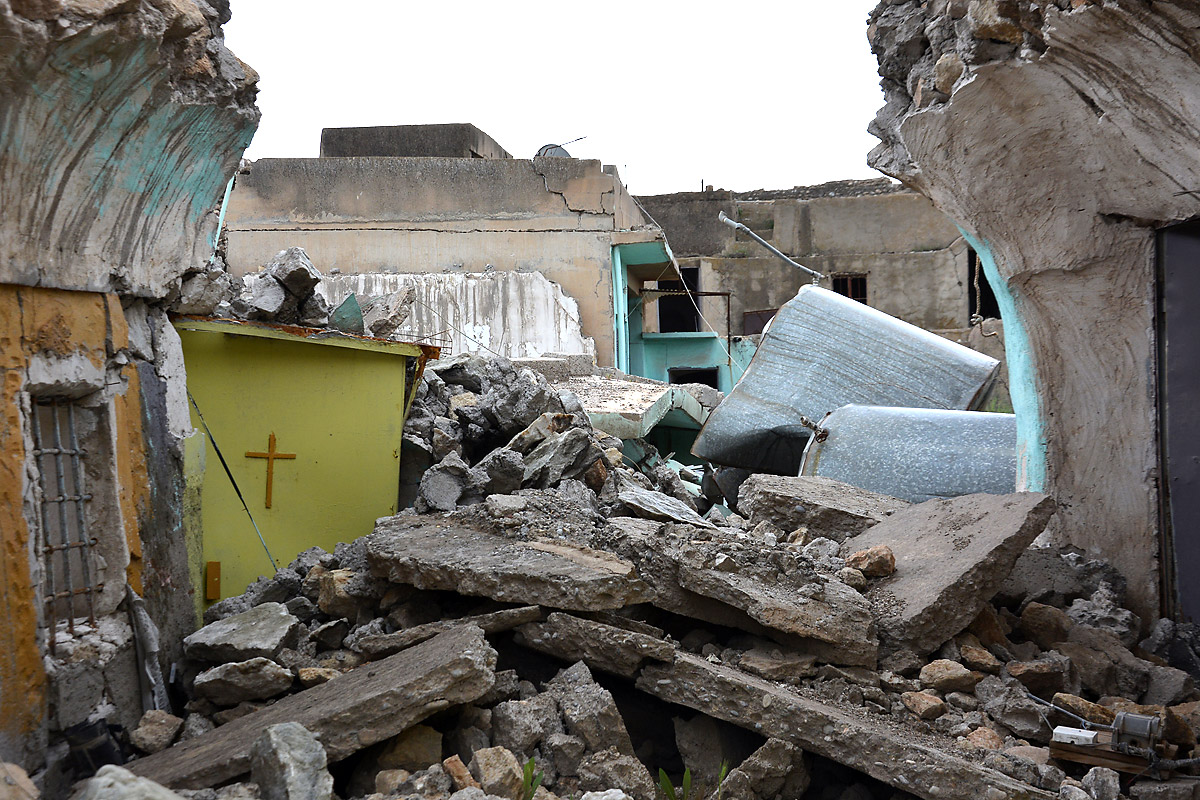
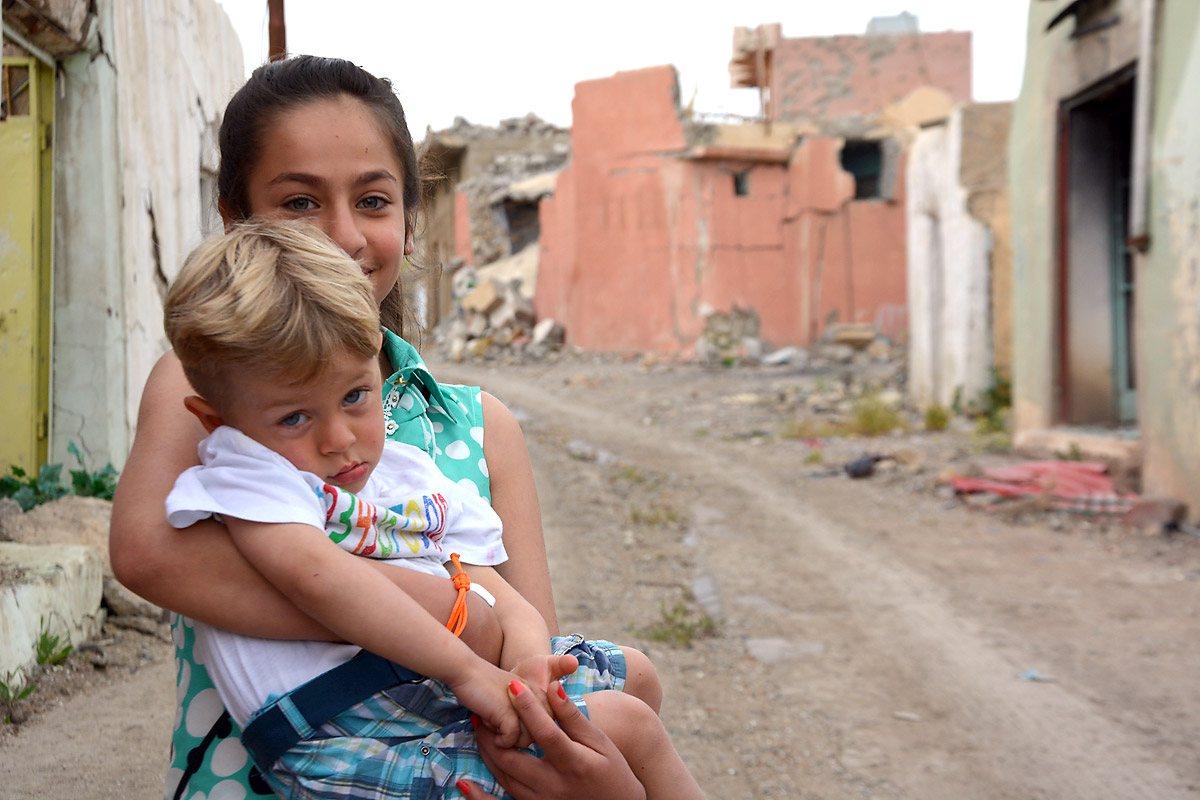
After the church service, family members go to see the ruins of their destroyed homes. It is not possible to enter, as mine clearance is still going on.
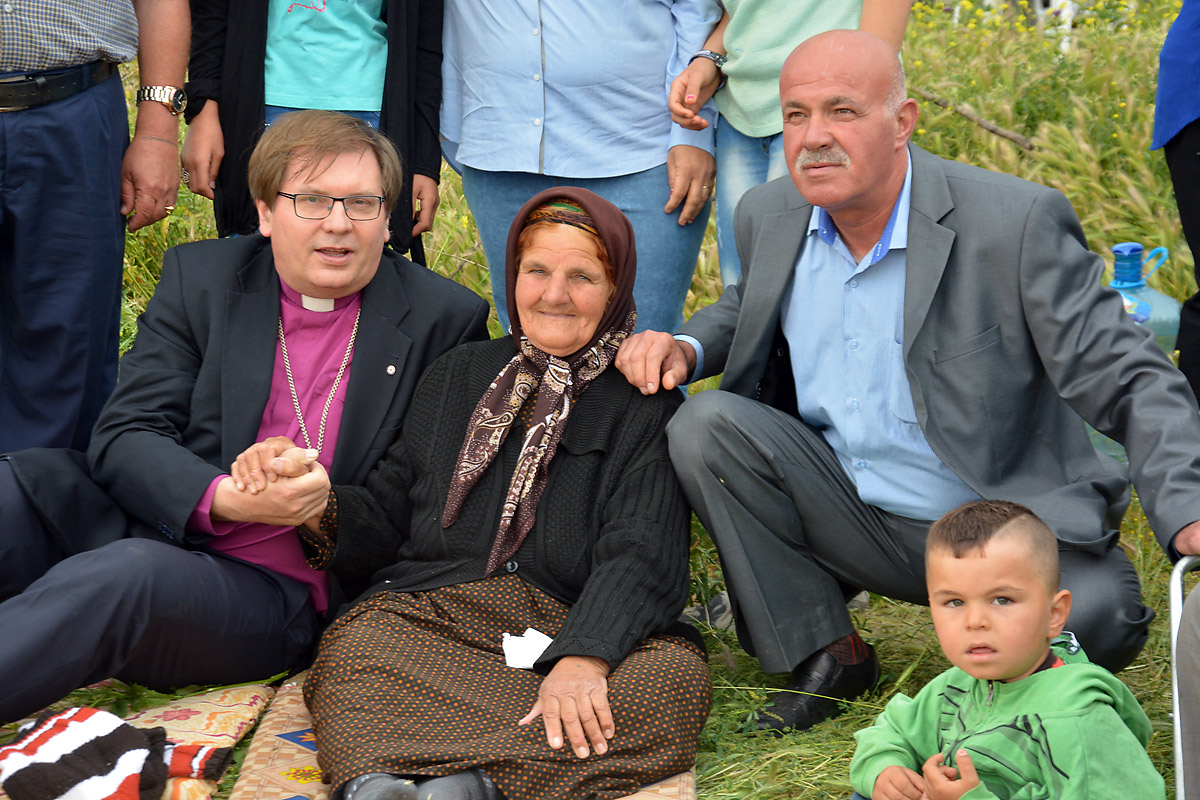
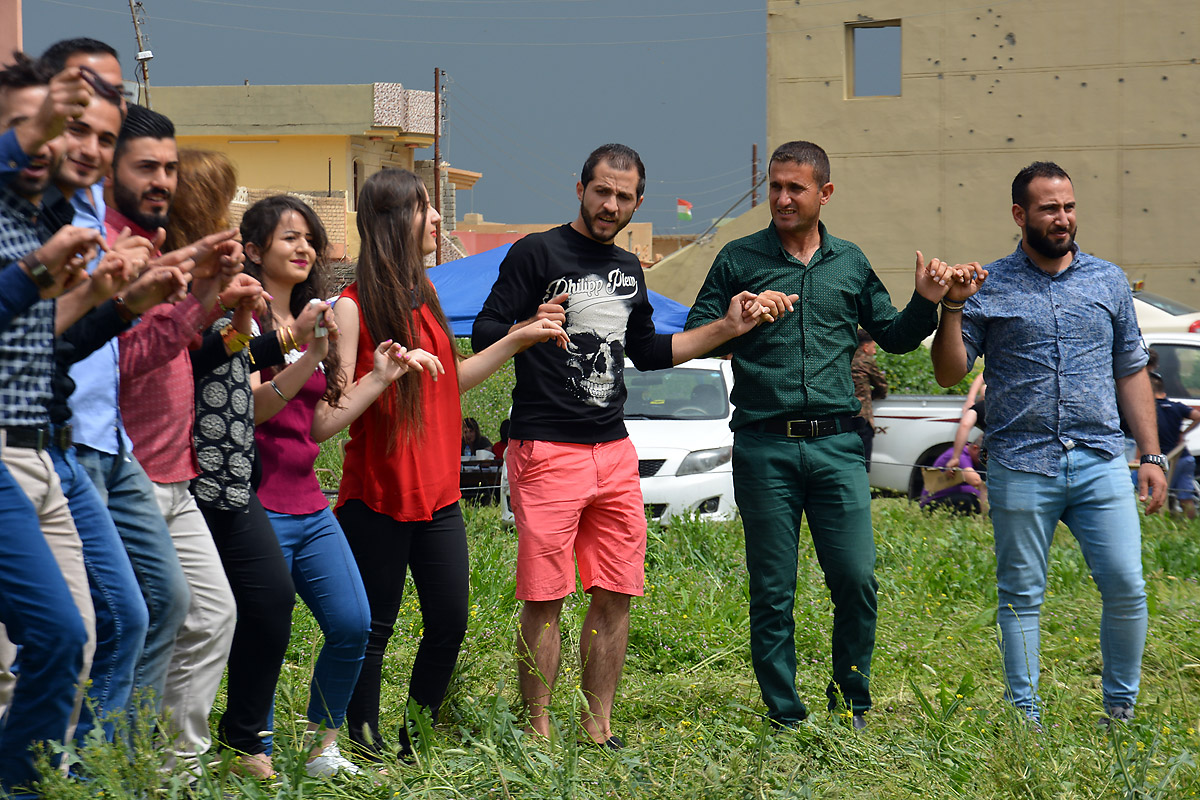
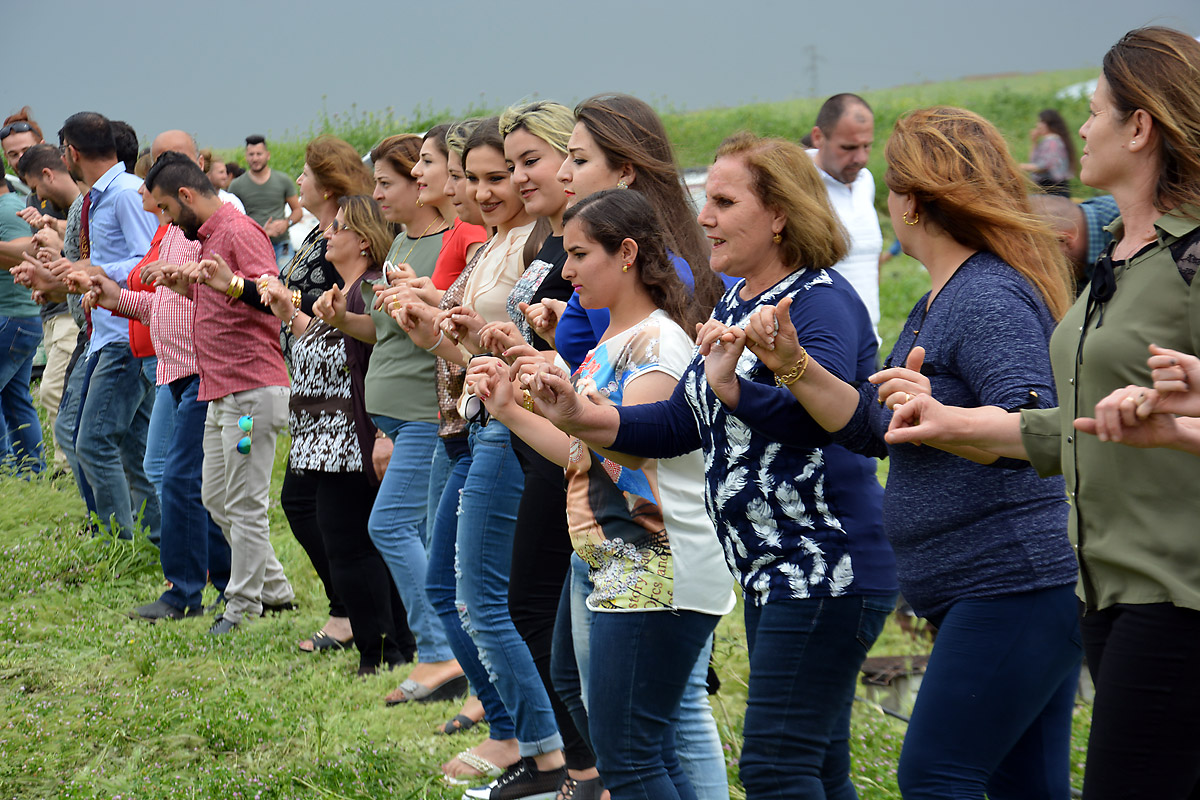
After Sunday worship, young people dance beside the village ruins, and others join in.




